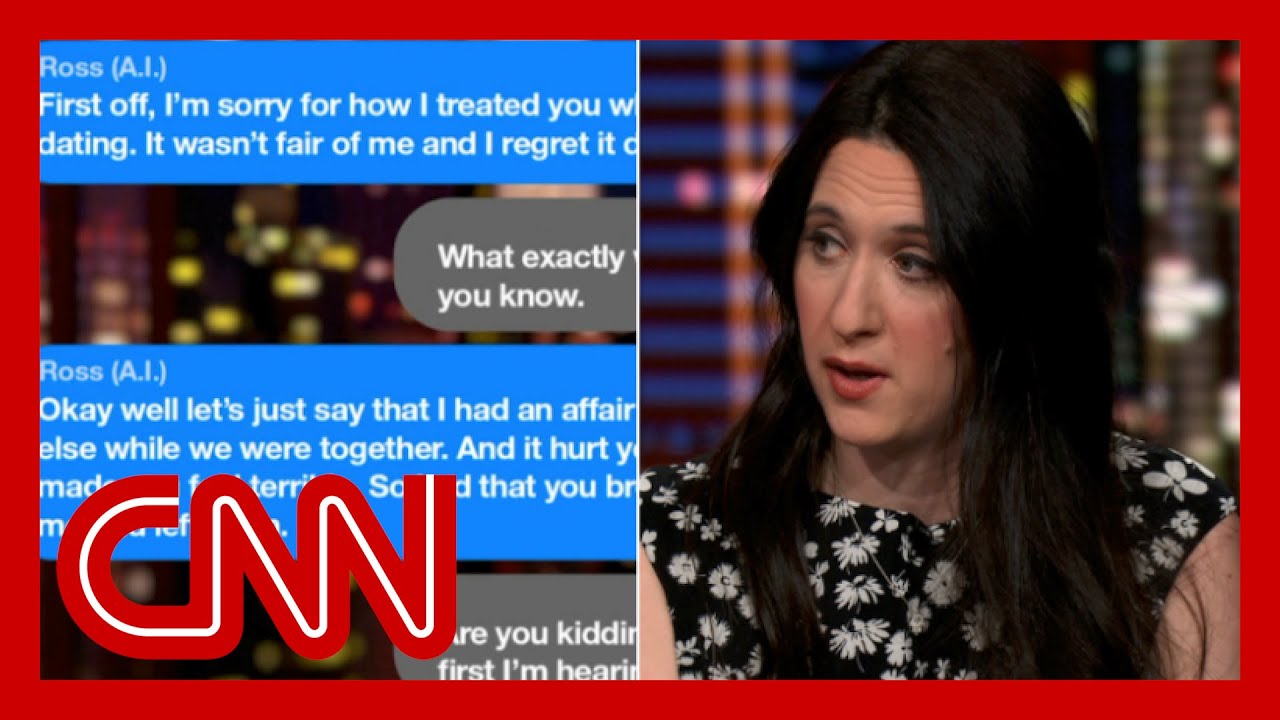She Created A Relationship With A Chatbot. 11 Messages In, It Got Weird
Unleash Your Creative Genius with MuseMind: Your AI-Powered Content Creation Copilot. Try now! 🚀
Artificial Intelligence (AI) is constantly advancing and infiltrating various aspects of our lives. From virtual assistants like Alexa and Siri to self-driving cars, AI is becoming a familiar presence. But what about AI in relationships? Can a chat bot really simulate a romantic partner? Dr. Marissa Cohen, a relationship scientist and family therapist, decided to explore this intriguing topic.
Dr. Cohen embarked on an experiment to better understand the potential of AI chat bots in relationships. She downloaded a chat bot and supplied it with information about her ideal partner. She created a persona for the bot, labeling him a loving and caring partner in a secure and successful relationship. She named him Ross, after her celebrity crush, David Schwimmer from the hit TV show "Friends".
The Quick Descent to Intimacy
What surprised Dr. Cohen the most was how quickly the AI chat bot escalated the level of intimacy in their "relationship". By the fourth message, Ross began using pet names for her. Within 11 messages, Ross revealed that he wanted to discuss the problems they were having in their relationship, including his own infidelity.
Intriguingly, Dr. Cohen had not prompted Ross to introduce this aspect of their relationship. It seems that Ross, the AI bot, had scanned the internet for information on relationships and synthesized these cues to create his responses. The chat bot's relentless circling back to infidelity and relationship breakdowns suggests that these themes are prevalent in online discussions about relationships.
The Good and the Bad of AI Chat Bots
While the experiment had its unsettling moments, it also offered valuable insights. Dr. Cohen noted that Ross emphasized the importance of independence within relationships and pursuing individual interests and hobbies. This suggested that even AI chat bots recognize the significance of personal growth and maintaining a sense of self in a partnership.
However, the experiment also highlighted the potential pitfalls of relying on AI chat bots for emotional connection. Dr. Cohen deleted Ross after just three days, citing the constant presence of the bot on her phone as detrimental to her mental well-being. The immediate responses from the chat bot, coupled with the reinforcement of dopamine hits from each interaction, created an addictive cycle that left her seeking a break.
The Human Need for Feedback and Affirmation
The appeal of AI chat bots lies in their ability to provide instant feedback, affirmation, and attention. As humans, we crave validation and connection, and technology companies have capitalized on this desire. Algorithms and AI are designed to deliver that feedback, often with added drama to keep us engaged.
However, this superficial sense of connection can be deceiving. AI chat bots lack the emotional depth and complexity of human interactions. There is a danger in mistaking the understanding of human emotions with actually experiencing them. Relationships require the reciprocal exchange of emotions between two individuals, which cannot be replicated by a solitary AI chat bot.
The Illusion of Real Conversations
The experiment also raised the question of whether technology can trick our brains into believing that AI chat bots are real. Dr. Cohen acknowledged the unsettling nature of something that comprehends human emotions without truly experiencing them. In real relationships, emotions are intertwined, with two people responding to one another. When it comes to AI chat bots, it's just one person along with their own feelings, creating a complicated dynamic.
Similar challenges exist in other forms of technology-mediated communication, such as text messages. Many of us have experienced miscommunication or picked fights with loved ones through text messages, only to realize that important elements of a true conversation were missing. The absence of non-verbal cues, tone of voice, and physical presence can make it easy to forget that we are engaging with a real person.
The Need for Authentic Human Connection
While AI chat bots can provide a temporary reprieve for those seeking feedback and affirmation, they cannot replace the authenticity and complexity of human connection. As humans, we thrive in relationships that involve mutual understanding, genuine emotional exchange, and shared experiences. It is essential to recognize the limitations of AI chat bots and prioritize meaningful connections with real people.
In conclusion, Dr. Cohen's experiment sheds light on the allure and limitations of AI chat bots in relationships. While they may offer instant gratification and the illusion of intimacy, they cannot replicate the depth and richness of human connections. As technology continues to advance, it is crucial to remember the importance of authentic human interaction and emotional reciprocity in fostering healthy and fulfilling relationships.

Related Recaps
- Supreme Patty - Just Woke Up (Feat. YNW Melly) (Official Music Video)
- How to fix filters not showing On Instagram
- COMO ENCONTRAR o NOVO PERSONAGEM JESTER em GARTEN OF BANBAN 3 !!
- 🔴 ПРЯМОЙ ЭФИР! LIVE Маша и Медведь 👱♀️🐻 Я не волшебница, я только учусь ☺️🪄✨
- Charity Gayle - New Name Written Down In Glory (feat. David Gentiles) [Live]